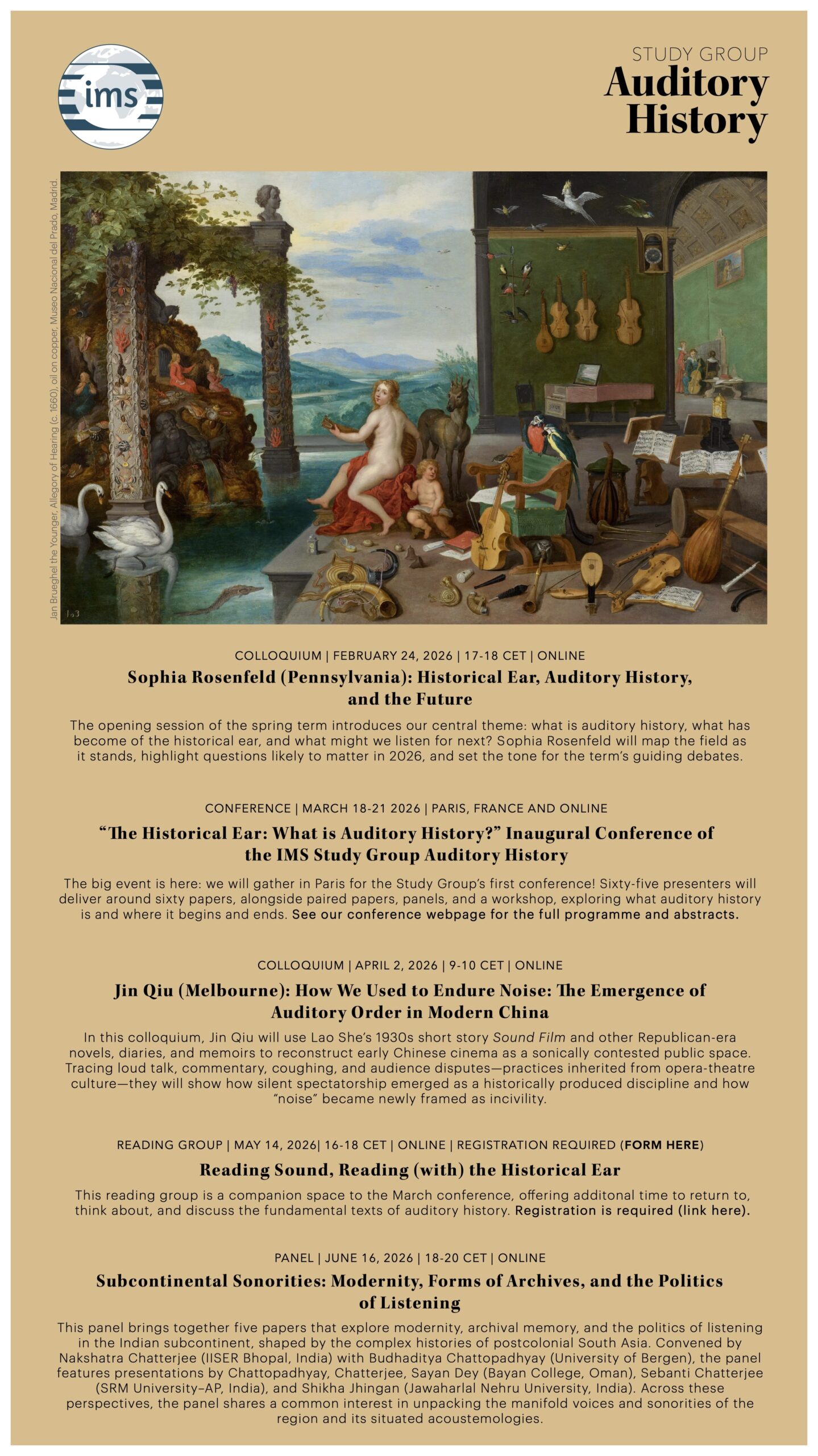Our annual programme is organised in two semesters (September to December and February to June) and consists of general assemblies, colloquia, reading groups, and workshops. For detailed description of each, consult our Guidelines for Contributors section.
The participation in the events is open to everyone: there is no obligation to be an official member of the IMS or the Study Group. To obtain the Zoom-link for the events, please contact the chairs of the group via email.
To access the links embedded in the image, please download the programme from the link below and access it through the file.

